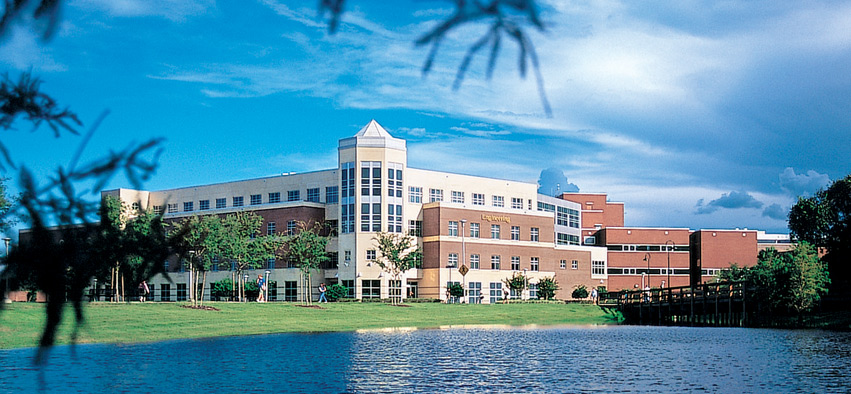This year’s five UCF National Science Foundation CAREER grant recipients are finding innovative and bold new ways to solve challenges that could be game changers in healthcare and engineering.
For example, one researcher is tracking down what triggers harmless microorganisms into going rogue and turning into deadly pathogens such as flesh-eating bacteria. Another faculty member is working to make artificial intelligence systems street smart, so they can make sound real-time decisions that could avert disasters such as a national blackout when the electrical grid system is overloaded.
The recipients will share about $3 million over five years. The awardees are:
- Salvador Almagro-Moreno, College of Medicine
- Samik Bhattacharya, College of Engineering and Computer Science
- Yanjie Fu, College of Engineering and Computer Science
- Lorraine Leon, College of Engineering and Computer Science
- Robert Steward Jr., College of Engineering and Computer Science
NSF uses the awards to recognize early career professionals with promising research who have the potential to serve as academic role models and lead their respective fields. This year’s recipients bring the total of UCF awardees to more than 50 in the past 10 years. A full list of NSF CAREER awards recipients at UCF, which dates as far as university records go, can be found at graduate.ucf.edu/nsfcareeraward.
This year’s recipients share a relentless drive, infinite curiosity and a real desire to help students succeed. They all said they are eager to ensure the next generation of scientists and engineers are well equipped to confront challenges we haven’t even imagined yet.
Tapping into Molecule Builders to Design New Materials
Assistant Professor Lorraine Leon
- College of Engineering and Computer Science
- CAREER Grant: $550,000
Assistant Professor Lorraine Leon is a chemical engineer who spends her time designing materials that mimic the properties of natural biomaterials. She does this by creating molecules based on peptides (small proteins) that are programmed to assemble into larger structures and adapt to different types of stimulation.
If successful, these new biomaterials could be useful in a variety of fields from medicine to energy. Leon and her team of five students are focused in two areas:
- Designing carriers for potentially life-saving drugs and nucleic acids that can help patients battling diseases such as cancer and
- Building new biomaterials used to create dynamic ecofriendly reactors.
She’s inspired by nature. It was in college that she learned that biomolecules organize into larger structures through self-assembly. There is no outside force guiding them. That is why understanding the design of biomolecules is so important. The building instructions for things like the cell wall are programmed into the molecule. It’s the molecular design that is key to being able to build new materials for broader application.
“The NSF Career grant will help us design new biomaterials used to create dynamic ecofriendly reactors,” she says. “We will accomplish this by designing new peptides that assemble into multilayered liquids containing functional proteins called enzymes. Inside of cells these type of transient structures are used to control chemical reactions.”
With more than a dozen peer-reviewed journal articles and another dozen invited lectures, Leon is on her way to becoming a master builder of these new materials, which hold so much promise.
Before joining the materials science and engineering department at UCF in 2017, she spent five years as a postdoctoral researcher at the Institute for Molecular Engineering at the University of Chicago and Argonne National Laboratory. She holds a doctorate in chemical engineering from City University of New York and a bachelor’s degree in the same field from University of Florida. At UCF, her lab is located at the College of Medicine at Lake Nona and she is also an affiliate member at UCF’s NanoScience Technology Center.
Like the other UCF award recipients, Leon is passionate about preparing the next generation of scientists. She does this through the several courses she teaches, and the mentorship in her lab. She works closely with two doctoral candidates and three undergraduates. She publicly thanked one of those students – Sara Tabandeh – on her Twitter account when notified about the award earlier this month.
“Both Ph.D. students have been part of the lab from the beginning,” Leon says. “They were instrumental in getting the lab set up, and are excellent lab citizens, they each manage specific instrumentation, mentor undergraduates, in addition to conducting research towards their dissertation. The undergraduates help the graduate students with their research, and eventually transition to individual projects. I have a great team.”
- Written for UCF Today by Zenaida Gonzalez Kotala
- Sept. 14, 2021
